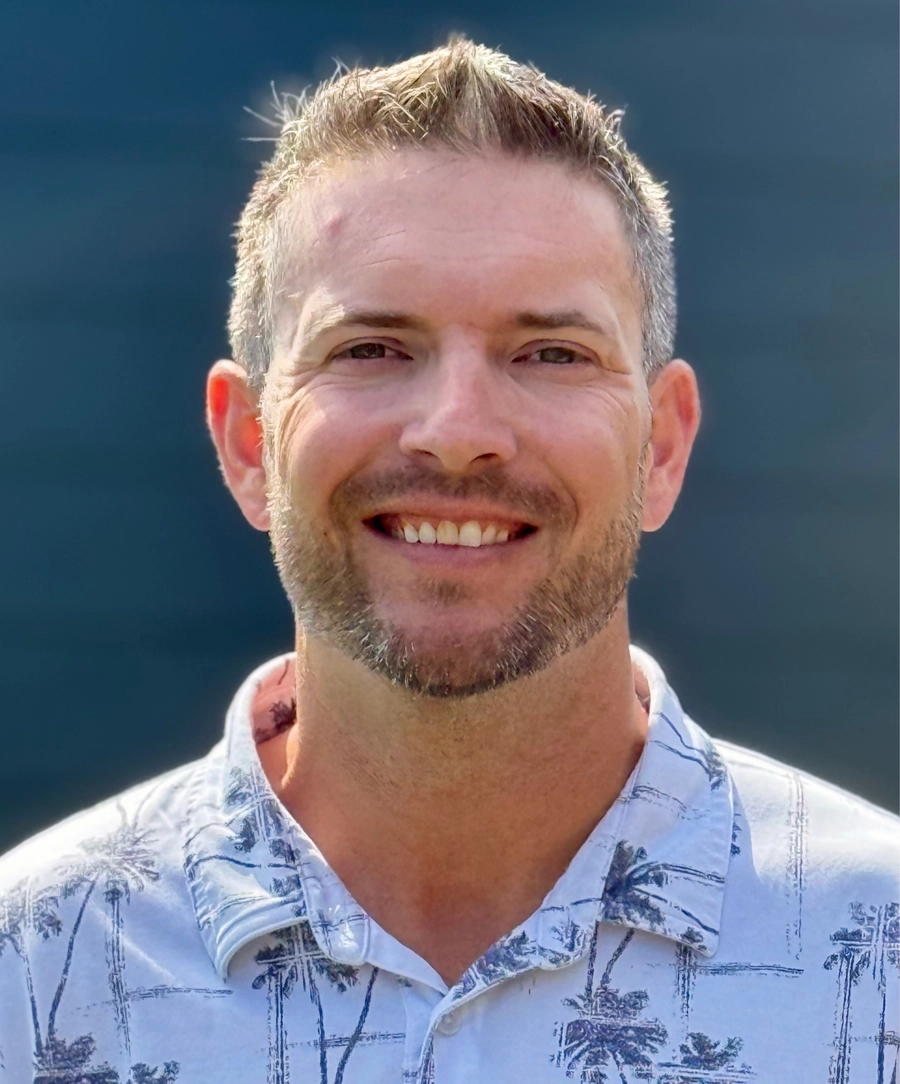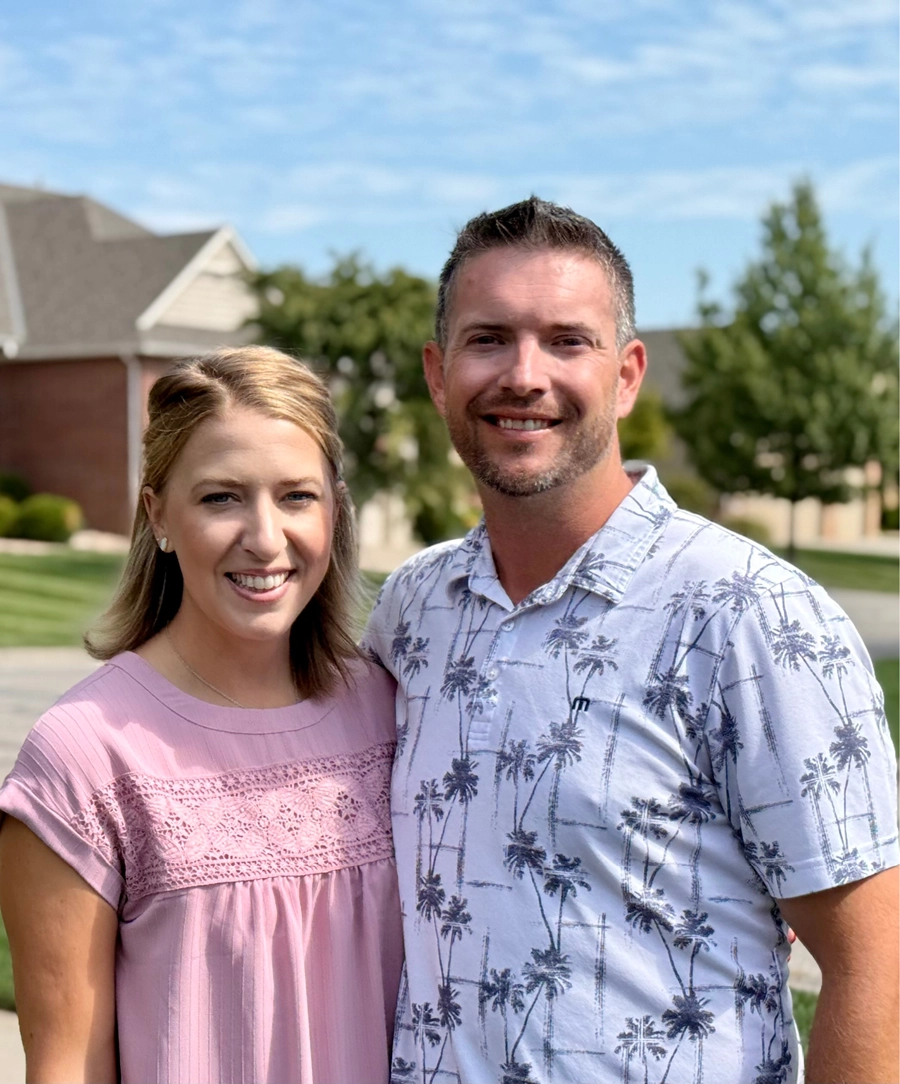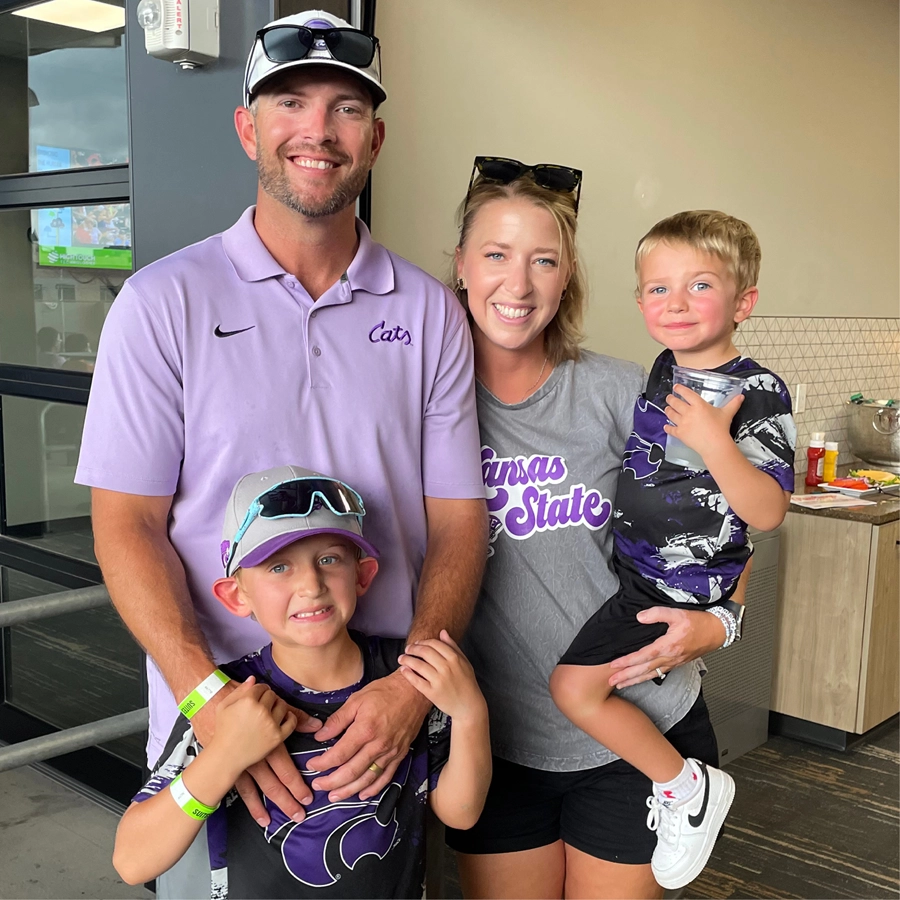Meet Evan Marshall Our 2025 Return to Work Champion
By Christina Eichelkraut
Evan Marshall, brain injury advocate and former MLB pitcher, was a featured speaker at the Brain Health Leadership Breakfast, a signature Brain Injury Association of Arizona event.
He’s also the recipient of the 2025 Return-to-Work Champion award — an award he’s earned by returning to work not once, but twice.
“The game doesn’t care if you’re feeling vulnerable; the game is the game, so deal with it,” Evan said. “So, I was never really afforded the opportunity to say, ‘I don’t think I’m quite here.'”
Meet Evan Marshall Our 2025 Return to Work Champion
By Christina Eichelkraut
Evan Marshall, brain injury advocate and former MLB pitcher, was a featured speaker at the 2025 Brain Health Leadership Breakfast, a signature Brain Injury Association of Arizona event.
He’s also the recipient of the 2025 Return-to-Work Champion award — an award he’s earned by returning to work not once, but twice.
“The game doesn’t care if you’re feeling vulnerable; the game is the game, so deal with it,” Evan said. “So, I was never really afforded the opportunity to say, ‘I don’t think I’m quite here.'”
It’s been 10 years since former MLB pitcher Evan Marshall was hit in the head by a 105 miles per hour line drive while pitching for the Arizona Diamondbacks Triple-A affiliate during a 2015 regular season game. Evan’s skull was fractured and required surgery to control his brain swelling and bleeding.
With the help of intensive rehabilitation at Barrow Neurological Institute, Evan made a remarkable physical recovery, returning to the mound within just seven months. He now reflects that may have been enough time for his body to heal, but he actually needed more time to get his head back in the game.
“In hindsight, I was physically ready but not mentally to be in that space again,” Marshall shared.
Initially, everything seemed fine, at least as far as Evan’s pitching was concerned.
“At the very beginning, when I hadn’t really gotten back into the grind, everything was peachy,” Evan said. “I thought that the next year around, I’ll be back.”
But soon enough, the lingering effects of the injury began to take hold.
First, there was the intensely competitive environment that is the hallmark of all professional sports. At the time, Evan was one of the youngest players on the team, and, like most professional athletes building their careers, he was acutely aware that there was always someone in line to take his place.
Then there was the psychological fallout of the event itself. After months of laser focus on his physical recovery, Evan’s mind and heart began to process what had happened.
“The game doesn’t care if you’re feeling vulnerable; the game is the game, so deal with it,” Evan said. “So, I was never really afforded the opportunity to say, ‘I don’t think I’m quite here.'”
Although Evan was pitching well, the signs that he had overcome a massive physical trauma began to show. It was a strange juxtaposition to grapple with amidst intense, constant pressure to perform.
“I know that I’m physically doing it,” Evan said. “But I was still ducking every time a ball got hit back up the middle.”
And that wasn’t all.
While navigating the relentless demands of Major League Baseball, Marshall also battled nightmares, flashbacks, an unwanted backdrop to the pressures of constant relocation between teams.
Then there was the demanding, chaotic schedule of being in the MLB itself. At the time, players could be called to play for other teams or switched to the minor leagues as many times as an organization needed. Each call meant navigating all the logistical challenges of a major move, usually on short notice and with an extremely tight deadline.
His wife, Allie, recalls the hidden emotional and mental toll of those years, emphasizing the resilience and determination it took for their family to move forward.
“Not only was he trying to focus on baseball, but when you get that call after a game at midnight, you need to take a flight and get to Reno by tomorrow…that will take a toll on anyone, just the uncertainty,” Allie said.
Every relocation meant navigating a litany of issues. Sometimes, moving meant figuring out how to pay two rents during the transition, or how to transfer keys to the next person moving into the company housing. Then there was moving the household cars, family members, and pets. Usually, it has to be done in a matter of hours, sometimes in as little as half a day.
Evan’s first season back on the mound after his brain injury had several relocations, and it didn’t help his mental or emotional state.
“I think I went up and down like six times that next season,” Evan said. “And I think more than anything, I needed stability and comfort just to kind of get back into it.”
By the time the season ended, Evan was utterly exhausted.
“I performed OK, ups and downs, but I was just mentally drained and exhausted by the end of that,” Evan said.
That fall, Evan wasn’t a September callup, which brought a lot of mixed feelings.On one hand, Evan partly welcomed the reprieve, hoping the break would reignite the love he had for the game that had begun to fade.
“It was becoming more of a job at that point, than a passion from childhood,” Evan said.
But it wasn’t entirely a blessing in disguise, either.
“More than anything, getting sent down is failure,” Evan said. “Even if it’s outside of your control, you could’ve played great, but you’re still on that plane. It signifies that you didn’t do enough while you were there to earn a spot to stay.”
It was a difficult pill for Allie to swallow as well.
“I think as a wife I took it personal too,” Allie said. “He almost died, and then we spent the whole off season trying to get him back, and going to all these therapy appointments, and it was just a lot.”
Now it felt like all that hard work and focus were to no avail.
“And then to have that year that followed, it almost kind of felt like a slap in the face because you beat this hurdle, but then you don’t even know what to do,” Allie said.
The Diamondbacks were supportive, offering Evan counseling and other mental health support. But at the professional level, that felt like a Hobson’s choice.
Evan felt strongly that he “could not show an ounce of weakness.”
And in some ways, that mindset worked in his favor.
“I think that’s part of what drove me through the rehab so quickly, and my desire to get back quickly was because I was trying to prove it,” Evan said.
On the other hand, the flashbacks and nightmares were an ever-present reminder that he may have benefited from some help.
It was a lot for anyone to process, let alone a young family quietly grappling with the aftermath of brain injury.
Community, Support, Healing
Finding community through BIAAZ was a turning point. By connecting with other survivors and caregivers, the Marshalls found the support and understanding they needed to begin deeper healing.
“It wasn’t until we came back to Arizona, and we were able to start meeting other families, that it felt like we could take a breath,” Allie said. “Like we were able to kind of start healing, just to hear other people’s stories.”
Though being in a space with other survivors of brain injury, caregivers and spouses who understood their situation was cathartic, Evan admitted that for him it was still a bit of a double-edged sword.
“You’re thrilled to be with families to understand their walk of life and what they’re going through and relating it back to your own story,” Evan said. “But at the same time, you’re also there, and you’re not in the locker room, not on the field.”
Despite missing the career that had been his lifetime calling, Evan was grateful to have an understanding and empathetic community.
“Being in a room with others who truly understood what we were going through gave us space to finally let our guard down,” Evan said.
The experience also helped him maintain perspective and gratitude during an exceptionally trying time.
“Obviously, we saw cases that were far more severe than my own,” Evan said. “It was enlightening to see just how lucky I was to be on the fast track to recovery.”
Working with BIAAZ also gave the couple a chance to more fully emotionally process the injury and its fallout, especially the rather discordant experience of Evan’s rapid physical recovery with the less visible impacts of brain injury.
“We just really couldn’t talk about the vulnerabilities unless we were at events with [BIAAZ],” Allie said.
New Chapter, New Job
Marshall went on to play nine more seasons of professional baseball before retiring in 2023 following an elbow injury.
“The decision to retire came mostly out of injury,” Evan said.
In November of 2021, Evan underwent Tommy John surgery. Though the surgery and his recovery went well, he did suffer a few setbacks and missed the next season.
By April 2023, Evan had signed with the Los Angeles Angels and was doing well physically, finishing his rehab journey, lifting heavy during his training and throwing hard when pitching. In the offseason after the 2023 season, he felt the familiar elbow pop and found himself abruptly staring at the prospect of missing yet another half-season at least.
That was when Evan made the decision to leave baseball, which was bittersweet. He had been recruited from college and had dreamed of being a professional ballplayer his whole life.
“It was tough because it was the only job I’d ever had,” Evan said. “It was the only identity I’d ever had other than being a father and husband.”
But if there was one thing Evan knew, it was how to confront and deal with challenges. He recalled something he’d been told when he first joined major league baseball: “Every player becomes a former player eventually.”
Evan loved the game and everything it had given him, but he recognized the time had come to move on.
New Chapter, New Career
Evan is a natural leader. He has a quiet, steady confidence balanced by a sincere humility. Early in his baseball career, those personal qualities, combined with his experience, had drawn the attention of the Chicago White Sox coaching staff, who named him a team captain.
Evan wasn’t sure what was next, but whatever it was, he was ready to bring the same focus and discipline that had gotten him through the challenges he had faced during the past few years.
First things first, he had to create a resume.
“That took some time because I’d never had a real job before,” Evan said, chuckling.
Fortunately, MLB has a lot of player support services to help its athletes transition out of the league successfully. The organization helped him with everything from gathering referrals to getting a decent headshot. Evan had earned his college degree while playing for the White Sox, so he already had that foundation in place.
Next: Figuring out what he wanted to do. That began an exploratory phase. Like all job seekers, Evan leveraged his network and started going to job interviews.
Even before he retired, Evan had been told by friends who worked for a commercial insurance firm that he’d be a great fit for the industry. They reminded him that an opportunity might still exist for him in that field, so he interviewed for the position.
He was hired and thus began his next professional chapter.
Transitioning from a baseball diamond to a corporate office was an adjustment, and there was a learning curve.
“I didn’t even know what a deductible was until I was twenty-eight,” Evan said.
But true to form, Evan also didn’t shy away from learning. He leaned into his new career with characteristic focus and quiet determination. Evan took classes and spent his first-year learning as much as he could about the industry from anyone he encountered.
“It was learning best processes and practices to be successful, just like learning best processes and practices to be a successful pitcher,” Evan said. “It’s the same in business; you just title it differently and it’s not lifting weights or long tossing.”
It took a bit to get his bearings, but Evan is now comfortable in his new role.
“I’m still fighting the fight, it just looks a bit different,” he said
The Life Wins
In addition to Evan’s baseball career, Allie and Evan’s family also grew during the years following his injury. They welcomed their first son, Ryan, in 2018 and a second son, Connor, in 2021. Butters, who spurred the creation of BIAAZ’s Butters Fund, was joined, a bit begrudgingly, by Daisy, a black lab puppy.
And Evan still has plenty of time on the baseball diamond, coaching the baseball team at Trinity Academy, where in 2025 the team made school history by winning their first state title. He also coaches his son Ryan, who is on a basketball and baseball team.
The Brain Health Leadership Webinar celebrates resilience, leadership, and community while spotlighting the impact of brain injury and the importance of ongoing support and awareness.
Christina Eichelkraut is a former print journalist who founded Christina Copy Co. in 2011. When her keyboard isn’t clacking, she bakes complex artisan bread, nerds out on political science, uses her fountain pens to write to pen pals the world over, and reads long past her bedtime in a joyful disregard of her alleged adulthood. Christina earned her B.A. in Mass Communications with an emphasis in print journalism in 2006 from Franklin Pierce University.
The Brain Injury Association of Arizona is the state’s largest nonprofit organization dedicated to improving the lives of brain injury survivors, their families, and caregivers. Your generous support is crucial to continue providing them with programs and services.
ABOUT BRAIN INJURY ASSOCIATION OF ARIZONA
The Brain Injury Association of Arizona (BIAAZ) is the only statewide nonprofit organization dedicated to improving the lives of adults and children with all types of brain injuries through prevention, advocacy, awareness and education. BIAAZ also houses the Arizona Brain Health Resource Center, a collection of educational information and neuro-specific resources for brain injury survivors, caregivers, family members and professionals.
What began in 1983 as a grassroots effort has grown into a strong statewide presence, providing valuable life-long resources and community support for individuals with all types of brain trauma at no charge.



